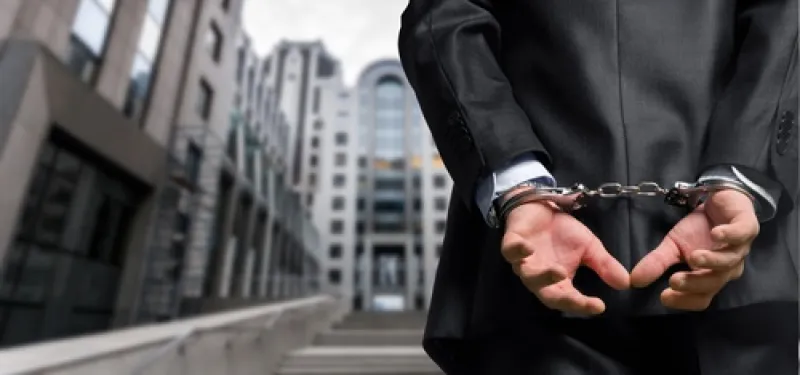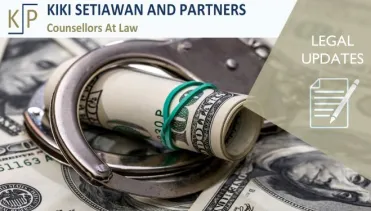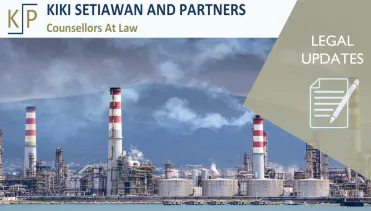
KSP LEGAL UPDATES
Publication
KSP LEGAL UPDATES
Indonesian Corporate Crime Law


The Indonesian Supreme Court recently enacted Supreme Court Regulation Number 13 of 2016 regarding Procedure to Handle Corporate Crime (the “Regulation”).
The Regulation is fundamentally needed for the law enforcement officers in preparing summons or indictment with light of corporate crime as the Indonesian Criminal Procedure Code does not recognize the existence of a legal entity as a subject of law.
The Regulation defines the category of corporate crime as follows:
a. company earns profits or benefits from corporate criminal act or such act is undertaken for interest of the company;
b. company allows criminal act;
c. company does not carry out necessary measures to do a deterrence act, to prevent bigger impact and to comply with the prevailing laws to avoid the occurrence of criminal act.
Further, the Regulation covers any corporate criminal acts due to merger, consolidation, separation and liquidation. A company is required to proportionally liable against criminal act limited to the value of shares, properties or assets contributed in the surviving company.
In case of a company is in the liquidation process, its criminal liability shall remain in the company and not legally null and void. If a criminal act is committed after the liquidation process complete, then creditors or any related party may sue the former board of the company or its heirs on the assets which are allegedly used for such criminal acts.
A company shall be represented by its board provided that the board which represents the company in the investigation at police level is obliged to attend the investigation in court level. In terms of the authentication system, it still refers to the system applied in the Indonesian Criminal Procedure Code. Any statement from company shall be regarded as valid evidence.
Any loss suffered by the victim of corporate crime can be claimed through restitution mechanism by submitting civil law suit to the court. Meanwhile, criminal sanction to a company can take the form of monetary fines and additional criminal sanctions such as compensation or revocation of company’s business license.
Having the Regulation in place, the law enforcement officers are currently not only able to prosecute the board of company which breaks the laws. Importantly, they are authorized to penalize the company to pay sum of money, as fines, to the Indonesian government.
The Regulation is fundamentally needed for the law enforcement officers in preparing summons or indictment with light of corporate crime as the Indonesian Criminal Procedure Code does not recognize the existence of a legal entity as a subject of law.
The Regulation defines the category of corporate crime as follows:
a. company earns profits or benefits from corporate criminal act or such act is undertaken for interest of the company;
b. company allows criminal act;
c. company does not carry out necessary measures to do a deterrence act, to prevent bigger impact and to comply with the prevailing laws to avoid the occurrence of criminal act.
Further, the Regulation covers any corporate criminal acts due to merger, consolidation, separation and liquidation. A company is required to proportionally liable against criminal act limited to the value of shares, properties or assets contributed in the surviving company.
In case of a company is in the liquidation process, its criminal liability shall remain in the company and not legally null and void. If a criminal act is committed after the liquidation process complete, then creditors or any related party may sue the former board of the company or its heirs on the assets which are allegedly used for such criminal acts.
A company shall be represented by its board provided that the board which represents the company in the investigation at police level is obliged to attend the investigation in court level. In terms of the authentication system, it still refers to the system applied in the Indonesian Criminal Procedure Code. Any statement from company shall be regarded as valid evidence.
Any loss suffered by the victim of corporate crime can be claimed through restitution mechanism by submitting civil law suit to the court. Meanwhile, criminal sanction to a company can take the form of monetary fines and additional criminal sanctions such as compensation or revocation of company’s business license.
Having the Regulation in place, the law enforcement officers are currently not only able to prosecute the board of company which breaks the laws. Importantly, they are authorized to penalize the company to pay sum of money, as fines, to the Indonesian government.

Latest KSP LEGAL UPDATES





